
Find Help
More Items From Ergsy search
-

Is it possible to have a heart attack without chest pain?
Relevance: 100%
-

Heart Attack Stories | NHS
Relevance: 71%
-
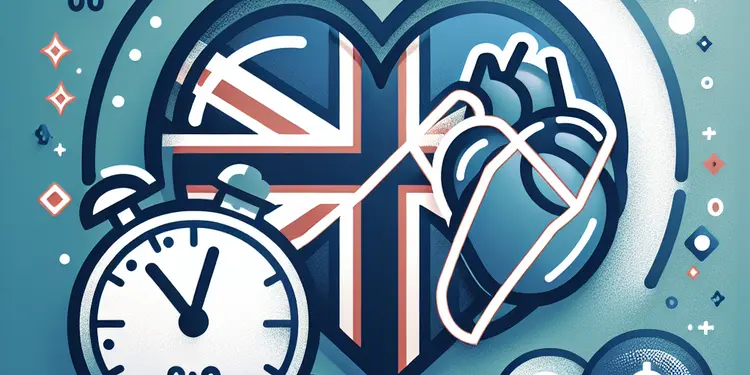
How long do heart attack symptoms last?
Relevance: 69%
-
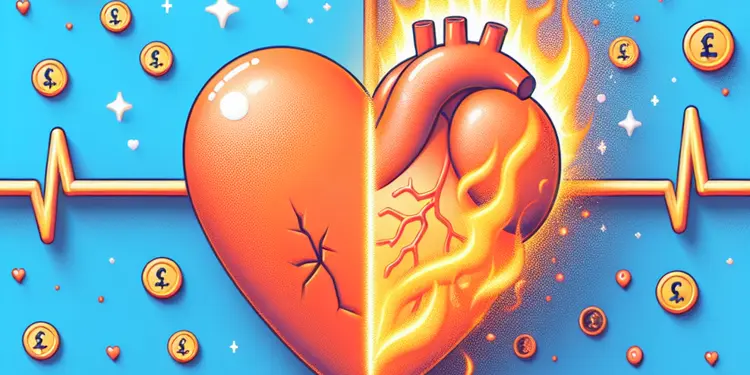
How can I differentiate between heartburn and a heart attack?
Relevance: 69%
-

Heart Attack Symptoms - Peter Dale (Tubes) | NHS
Relevance: 69%
-

Heart Attack Stories | NHS
Relevance: 67%
-
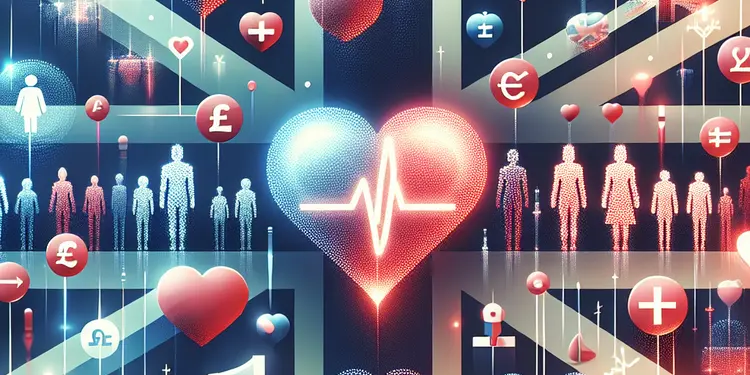
Can heart attack symptoms vary by age?
Relevance: 67%
-

Are heart attack symptoms different for people with diabetes?
Relevance: 67%
-

Heart Attack Symptoms - Help Us Help You | NHS
Relevance: 67%
-

Can women have different heart attack symptoms than men?
Relevance: 64%
-

Heart Attack Symptoms - Peter Dale (Tubes) | NHS - BSL version
Relevance: 64%
-
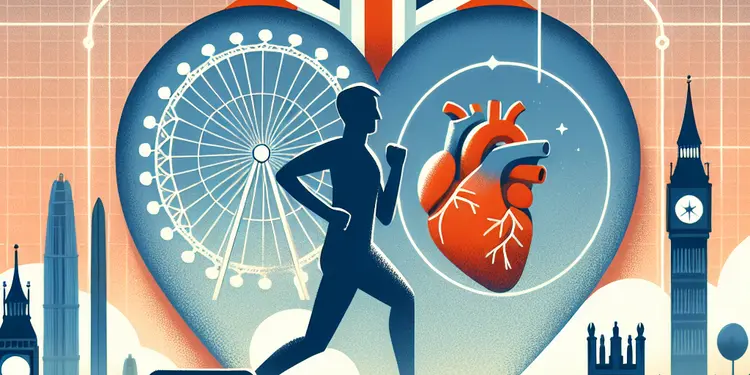
What should I do if I'm experiencing heart attack symptoms?
Relevance: 60%
-
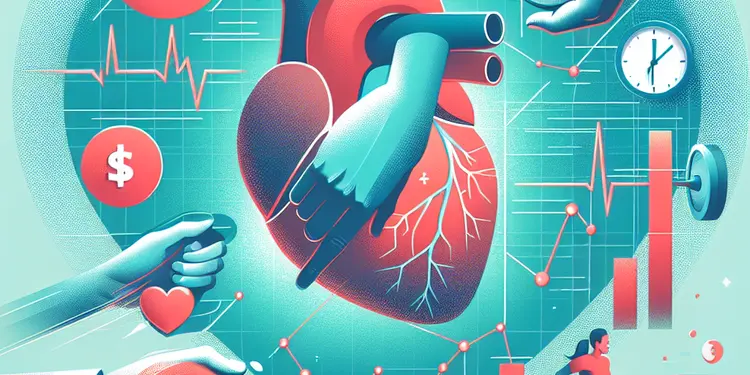
Can physical exertion trigger a heart attack?
Relevance: 56%
-
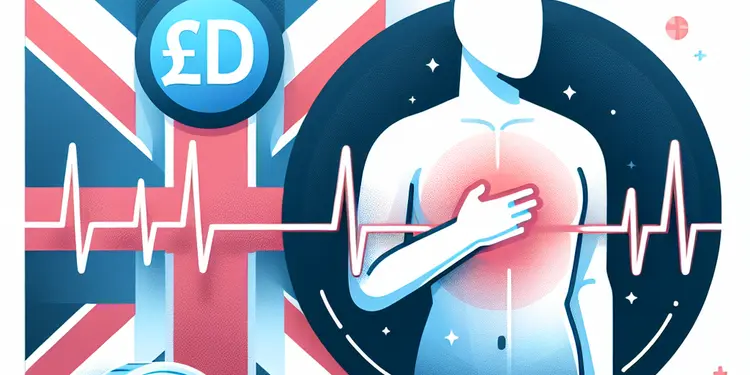
Is chest pain always a sign of a heart attack?
Relevance: 55%
-
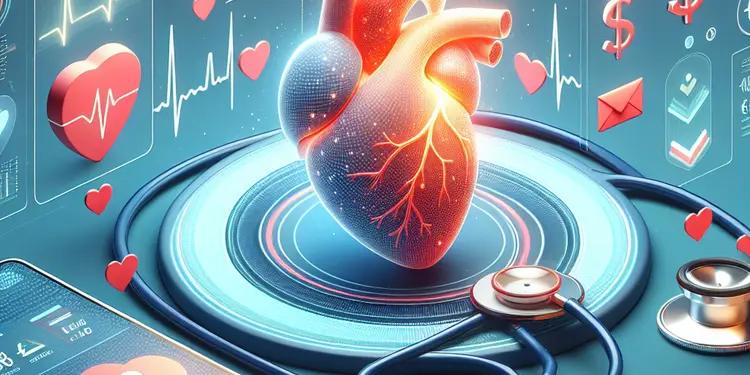
Is it possible to prevent a heart attack?
Relevance: 54%
-
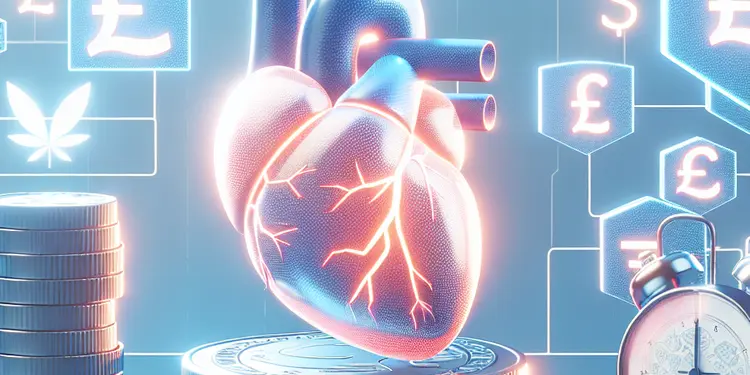
How do beta-blockers contribute to heart attack prevention?
Relevance: 53%
-
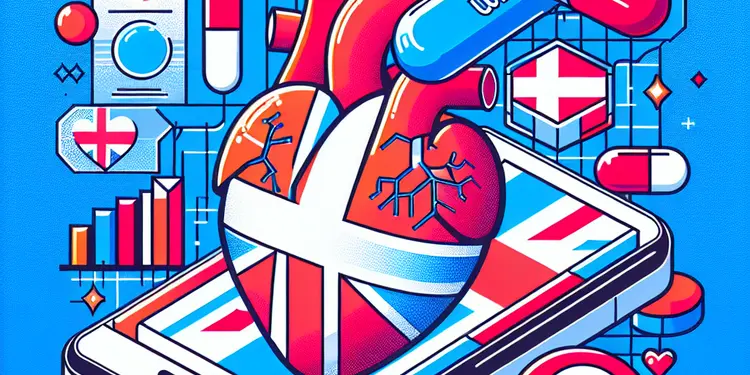
Do calcium channel blockers help in preventing heart attacks?
Relevance: 53%
-
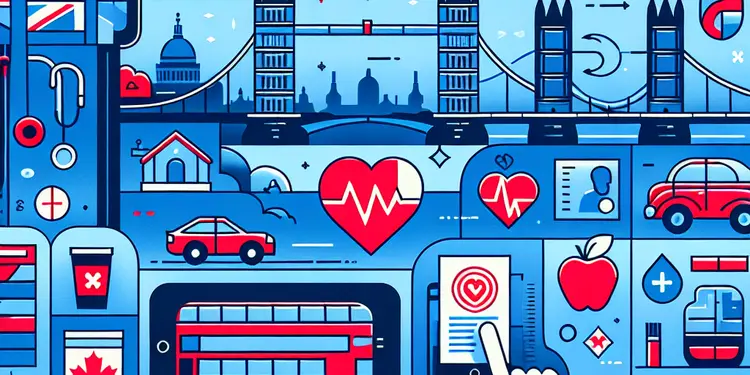
What are the risk factors for a heart attack?
Relevance: 52%
-
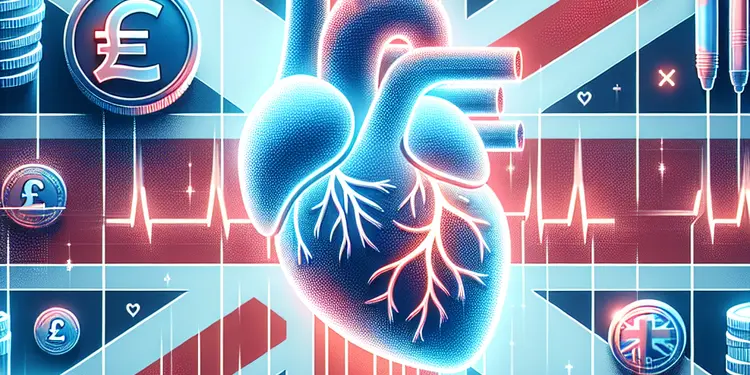
What are the long-term effects of a heart attack?
Relevance: 52%
-
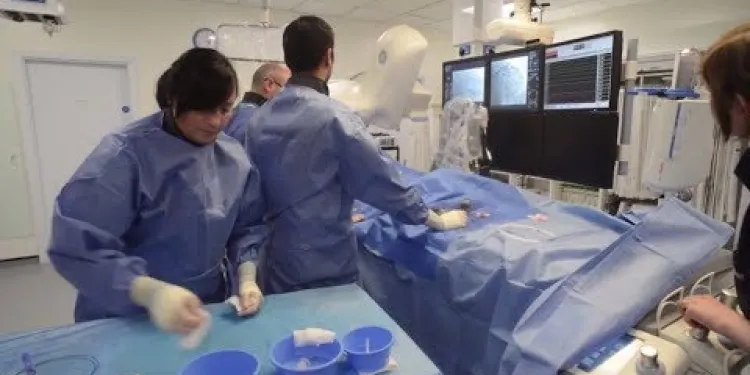
Heart attack care - Raigmore Hospital Inverness, NHS Highland
Relevance: 52%
-
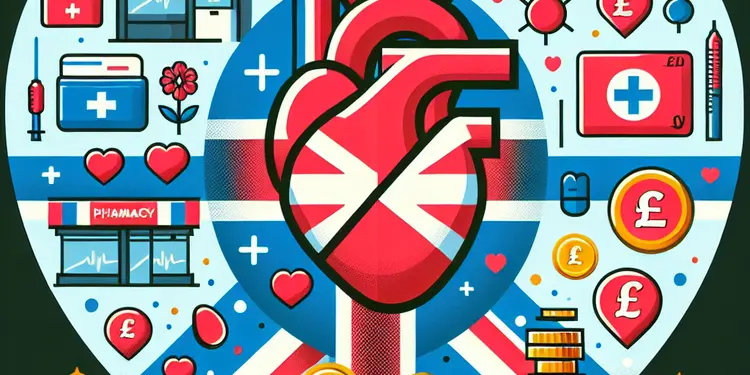
Do over-the-counter medications help in preventing heart attacks and strokes?
Relevance: 49%
-

What drugs are commonly prescribed to reduce the risk of heart attacks?
Relevance: 47%
-
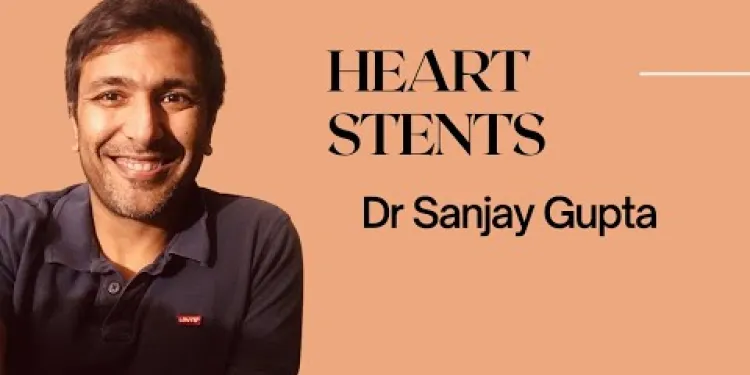
Heart stents
Relevance: 46%
-
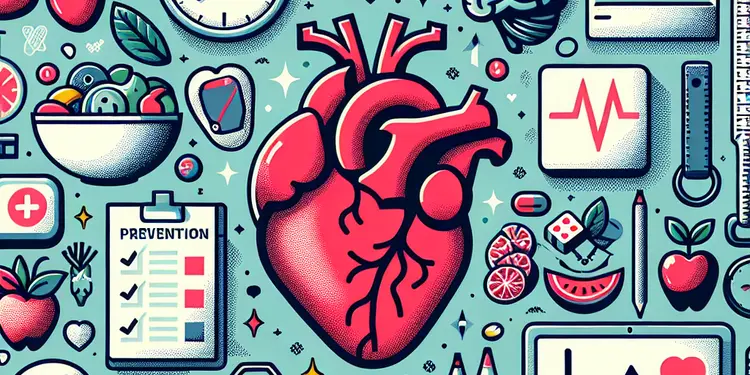
What is the role of lifestyle modification in heart attack and stroke prevention?
Relevance: 45%
-
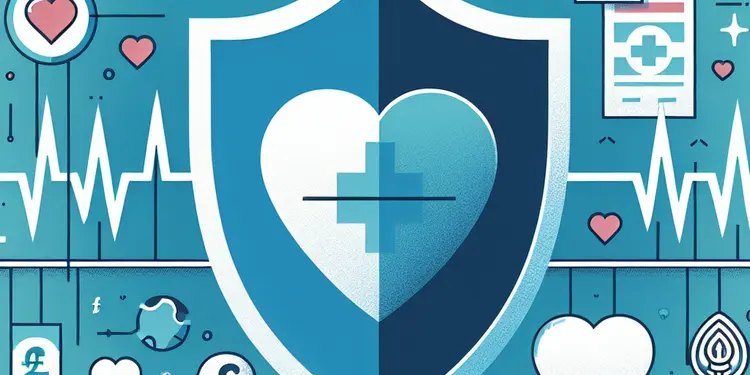
When should one start taking medication for heart attack prevention?
Relevance: 45%
-

Do all patients need medication to prevent heart attacks and strokes?
Relevance: 45%
-
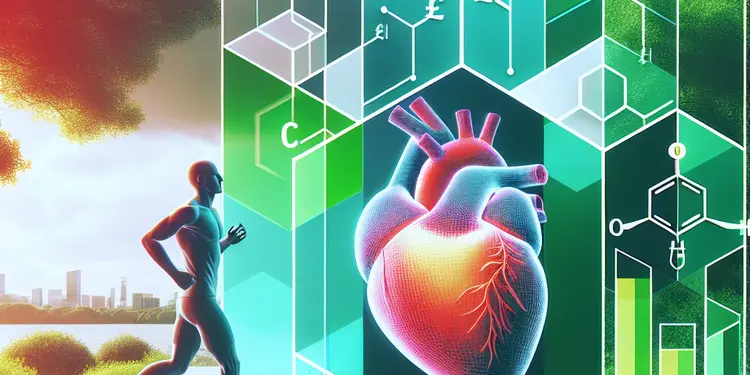
What is the role of PCSK9 inhibitors in heart attack prevention?
Relevance: 43%
-
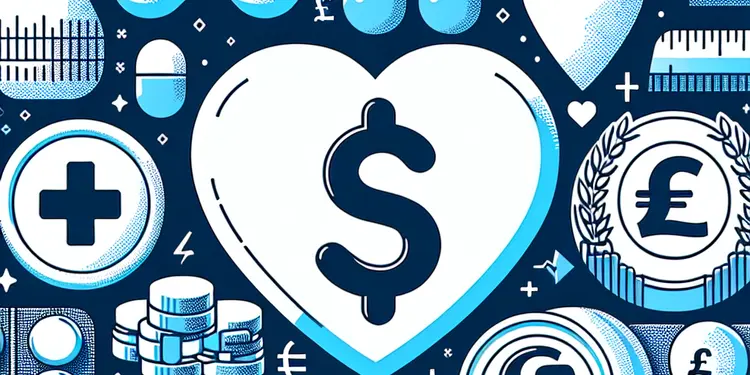
Can diabetes medications also help reduce heart attack risk?
Relevance: 43%
-
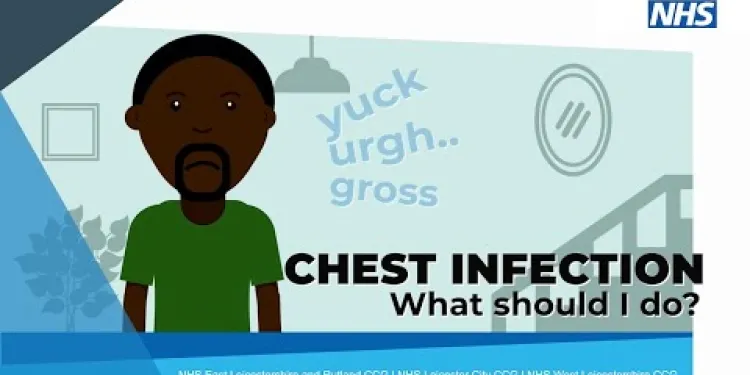
Chest infection: what should I do?
Relevance: 41%
-
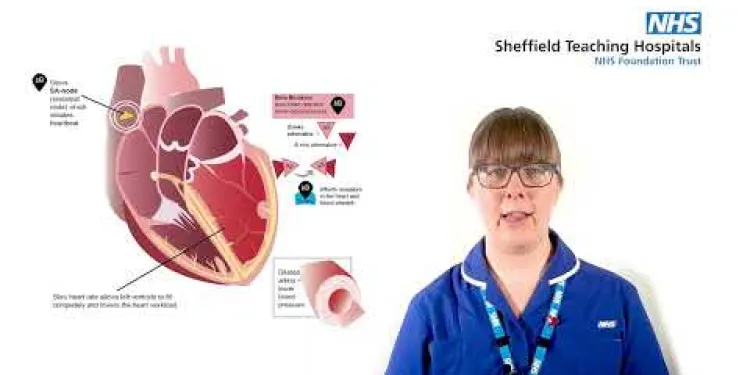
Medicines of the heart
Relevance: 40%
-
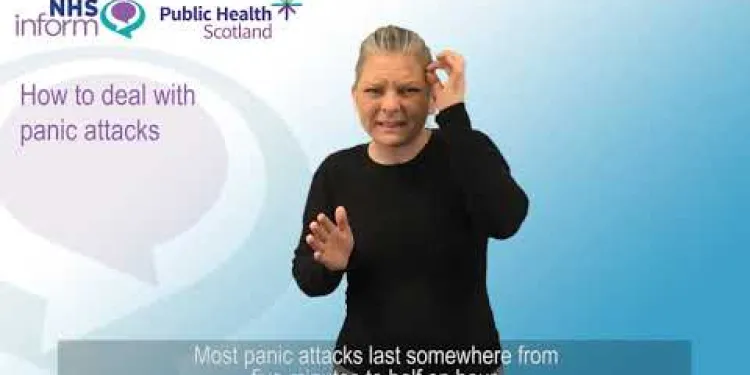
BSL - How to deal with panic attacks
Relevance: 39%
-
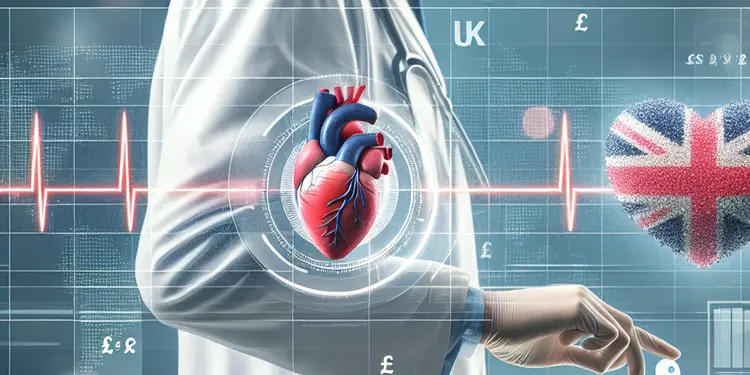
How is heart failure diagnosed?
Relevance: 38%
-

Chest clearance techniques
Relevance: 38%
-

Is my abnormal heart rhythm dangerous?
Relevance: 36%
-
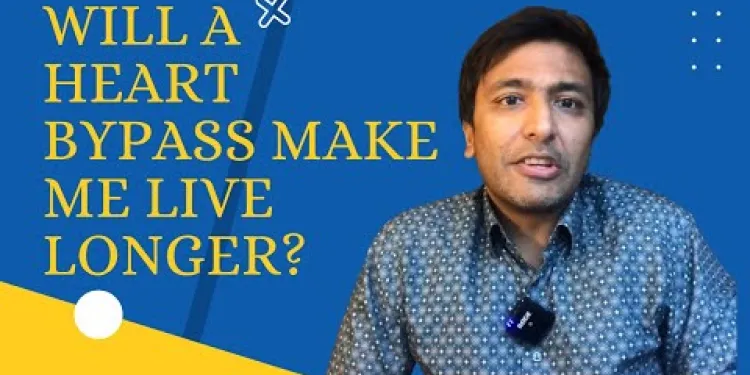
Will a heart bypass make me live longer?
Relevance: 35%
-

Heart Failure : The normal heart
Relevance: 35%
-
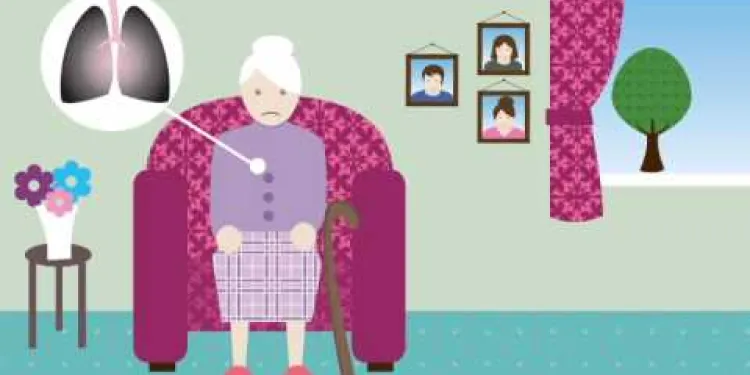
Dorothy's Story (Falls/Chest Infection)
Relevance: 35%
-
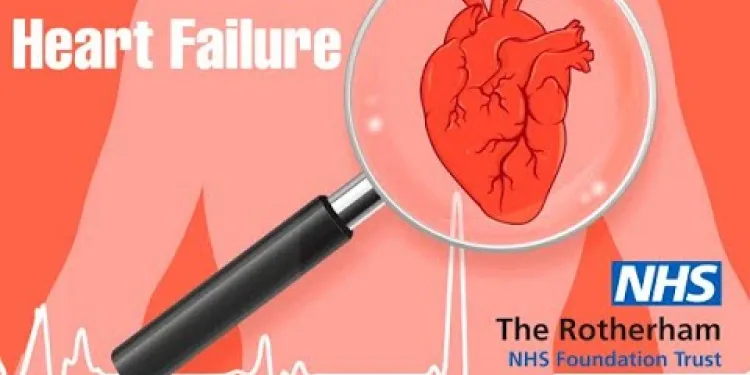
Heart Failure : Heart failure that cannot pump
Relevance: 35%
-
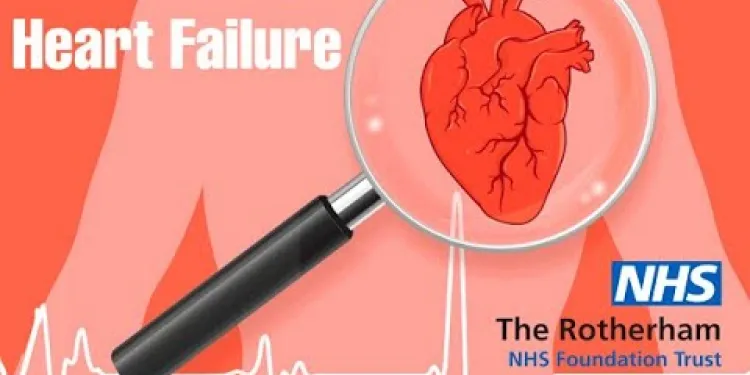
Heart Failure : When the heart becomes stiff?
Relevance: 35%
-

Is my abnormal heart rhythm dangerous?
Relevance: 35%
Introduction
Heart attacks, medically known as myocardial infarctions, are often associated with chest pain or discomfort as their primary symptom. However, it is possible for a heart attack to occur without the classic symptom of chest pain. This phenomenon is sometimes referred to as a "silent heart attack" or a "silent myocardial infarction."
Understanding Silent Heart Attacks
A silent heart attack may present with symptoms that are subtle, atypical, or even completely absent. They can occur without the intense chest pain typically recognised as a hallmark of a heart attack, potentially leading individuals to dismiss them as insignificant or attributable to less serious health issues.
Alternative Symptoms
While chest pain is a common symptom of heart attacks, individuals experiencing a silent heart attack might present with other symptoms such as shortness of breath, fatigue, nausea, vomiting, dizziness, or discomfort in areas such as the jaw, neck, upper back, or arms. Sometimes, these symptoms can be mistaken for other conditions like indigestion or stress.
Risk Factors for Silent Heart Attacks
Certain groups are more prone to experiencing heart attacks without chest pain. Older adults, women, and individuals with diabetes are more likely to have silent heart attacks. Diabetes, in particular, can lead to neuropathy, a condition that affects nerve function and may numb the pain signals that would alert someone to the presence of a heart attack.
Consequences and Importance of Awareness
Silent heart attacks are a concern because they often go unnoticed, delaying treatment, which can lead to significant damage to the heart muscle and increase the risk of further cardiovascular issues. Early detection and treatment are crucial to improving outcomes. Therefore, awareness of the potential for a heart attack to occur without chest pain is vital for both prevention and effective medical intervention.
Diagnosis
Diagnosing a silent heart attack can be challenging due to its often absent symptoms. Medical professionals may rely on electrocardiograms (ECGs), blood tests, echocardiograms, or other diagnostic tools to confirm the occurrence of a heart attack. Routine check-ups and cardiovascular assessments can be crucial, especially for those at higher risk.
Prevention and Management
Preventative measures are essential to mitigate the risk of both typical and silent heart attacks. This includes maintaining a healthy lifestyle with regular exercise, a balanced diet, managing stress, and avoiding smoking. For those with underlying conditions such as diabetes or high blood pressure, diligent management is key. Medication adherence and regular consultations with healthcare providers can also play a significant role in prevention.
Conclusion
In summary, it is indeed possible to have a heart attack without the classic symptom of chest pain. Understanding the alternative symptoms and risk factors associated with silent heart attacks can foster awareness, prompt early detection, and potentially save lives. If you experience any unusual symptoms or have risk factors for heart disease, it is important to seek medical advice promptly.
Introduction
A heart attack happens when your heart doesn't get enough blood. It can cause chest pain, but not always. Sometimes, a heart attack can happen without any chest pain. This is called a "silent heart attack."
Understanding Silent Heart Attacks
A silent heart attack might not show the usual signs. You may not feel any chest pain at all. The symptoms can be very mild or not there at all. This makes it easy to ignore.
Alternative Symptoms
Besides chest pain, a heart attack might cause other feelings. You could have trouble breathing, feel very tired, feel sick, throw up, or feel dizzy. You might feel pain in your jaw, neck, upper back, or arms. Sometimes, these signs are mistaken for something else, like a stomach ache or stress.
Risk Factors for Silent Heart Attacks
Some people are more likely to have a silent heart attack. Older people, women, and people with diabetes are at higher risk. Diabetes can damage nerves, which means the usual pain signals might be weaker or not felt at all.
Consequences and Importance of Awareness
Silent heart attacks are serious. They can cause major damage to the heart if not treated. Knowing the signs and getting help quickly is very important to protect your heart and stay healthy.
Diagnosis
Finding a silent heart attack can be hard because you might not have symptoms. Doctors can use tests like heart checks or blood tests to find out if someone had a heart attack. Regular doctor visits are important, especially if you're at risk.
Prevention and Management
To lower the chance of heart attacks, it's important to stay healthy. Exercise regularly, eat good foods, handle stress well, and don’t smoke. If you have health problems like diabetes or high blood pressure, keep them under control. Take medicines if your doctor advises and go for regular check-ups.
Conclusion
You can have a heart attack without chest pain. Knowing other symptoms and risks helps to find and treat them early. If you feel anything strange or are worried about your heart, talk to a doctor right away. They can help keep your heart safe.
Frequently Asked Questions
Is it possible to have a heart attack without chest pain?
Yes, it's possible to have a heart attack without chest pain. This is known as a silent heart attack or atypical presentation.
What are the symptoms of a heart attack without chest pain?
Symptoms can include shortness of breath, nausea, vomiting, sweating, dizziness, and discomfort in other areas such as the arm, neck, or jaw.
Who is more likely to experience a heart attack without chest pain?
Women, the elderly, and individuals with diabetes are more likely to experience heart attacks without chest pain.
Why might some heart attacks occur without chest pain?
The reasons aren't completely understood, but it may be due to differences in pain perception, the nature of the heart attack, or atypical presentations in certain populations.
What is a silent heart attack?
A silent heart attack is a heart attack that occurs without the typical symptom of chest pain and may have minimal or no noticeable symptoms.
Can silent heart attacks cause damage?
Yes, silent heart attacks can cause significant heart damage and increase the risk of future heart events.
How can a heart attack be detected without chest pain?
A heart attack without chest pain can be detected through an ECG, blood tests, or imaging tests if other symptoms suggest a heart issue.
How often do heart attacks occur without chest pain?
It's estimated that about 20-40% of heart attacks in certain populations might present without chest pain.
Are heart attacks without chest pain considered less serious?
No, they can be just as serious and require prompt medical attention.
What should I do if I suspect a heart attack without chest pain?
Seek emergency medical help immediately if you suspect a heart attack, even if chest pain is not present.
Can lifestyle changes reduce the risk of a silent heart attack?
Yes, healthy lifestyle changes like a balanced diet, regular exercise, and avoiding smoking can reduce the risk.
Is anxiety a possible symptom of a heart attack without chest pain?
Yes, some people may feel anxiety or a sense of impending doom during a heart attack, even without chest pain.
Can fatigue be a symptom of a heart attack without chest pain?
Yes, unexplained fatigue is a possible symptom of a heart attack without chest pain.
Is it possible to have a heart attack in sleep without chest pain?
Yes, silent heart attacks can occur during sleep without waking the individual.
How are silent heart attacks treated?
Treatment is similar to other heart attacks, including medications, lifestyle changes, and sometimes surgery.
Can palpitations indicate a heart attack without chest pain?
Though palpitations alone are not a definitive sign, they can occur during a heart attack and warrant further investigation if persistent.
Is it possible to have recurring heart attacks without chest pain?
Yes, individuals can experience multiple silent heart attacks if risk factors aren't managed.
Can a routine check-up detect a heart attack without chest pain?
Sometimes, routine tests like an ECG can reveal signs of previous silent heart attacks.
Are there any long-term effects of silent heart attacks?
Yes, they can lead to heart failure, other cardiovascular complications, and increased mortality risk.
Can heartburn be mistaken for a heart attack without chest pain?
Yes, gastrointestinal symptoms like heartburn can sometimes be confused with those of a heart attack, highlighting the importance of seeking medical evaluation.
Can someone have a heart attack without chest pain?
Yes, you can have a heart attack without chest pain.
Sometimes a heart attack feels like:
- Feeling very tired
- Feeling sick in your stomach
- Having trouble breathing
- Feeling dizzy
- Pain in your back, neck, or jaw
If you feel these signs, tell a grown-up or call for help. You can also use pictures or videos to understand better.
Yes, you can have a heart attack without feeling chest pain. This is called a silent heart attack.
What are the signs of a heart attack without chest pain?
Sometimes, a heart attack can happen without chest pain. Here are some signs to look for:
- Feeling very tired for no reason
- Feeling dizzy or lightheaded
- Having trouble breathing
- Feeling sick in your stomach
- Pain in your back, neck, jaw, or arm
- Feeling sweaty and cold
If you feel these signs, tell an adult or call a doctor right away. It's important to get help quickly!
Using pictures, charts, or reading with a helper can make this easier to understand.
Signs you might feel sick are:
- You find it hard to breathe.
- Your tummy feels upset and you might throw up.
- You sweat a lot.
- You feel dizzy or light-headed.
- You feel pain or something wrong in your arm, neck, or jaw.
If you have trouble reading, try reading with someone who can help. You can also use audiobooks or read-aloud apps.
Who might have a heart attack without chest pain?
Women, older people, and people with diabetes might have heart attacks without feeling chest pain.
Why do some heart attacks happen without chest pain?
Sometimes, people have a heart attack but do not feel chest pain. This can happen for different reasons.
Here are some reasons why:
- Nerve problems: Some people, like those with diabetes, can have nerve problems. This makes it hard to feel pain.
- Other symptoms: Heart attacks can cause other signs, like feeling tired or sick to your stomach.
- Different pain: Some feel pain in their arm, neck, or back instead of their chest.
If you feel strange or have any of these signs, tell an adult or see a doctor.
Use pictures or videos to learn more. They can help show what a heart attack is like.
Doctors don't know exactly why this happens. It might be because people feel pain differently. It could also be because heart attacks can be different for different people. Some groups of people might show different signs when they have a heart attack.
If you have trouble understanding, you can use tools like audiobooks or text-to-speech apps. Highlighting important words and breaking down sentences into smaller parts can also help you understand better.
What is a quiet heart attack?
A quiet heart attack is when the heart gets hurt, but we don't feel a lot of pain. It can happen without us knowing. **Helpful Tips:** - Look for tools that read text out loud. - Use pictures to help understand.A silent heart attack happens when your heart is in trouble, but you don’t feel it in the usual way. Most heart attacks cause chest pain. A silent heart attack does not. You might not notice any signs.
Can a silent heart attack hurt your heart?
Yes, a quiet heart attack can hurt your heart a lot and make it more likely you will have more heart problems in the future.
How can you know if someone is having a heart attack without chest pain?
Sometimes, people have a heart attack but do not feel chest pain. Here are some signs to watch for:
- Feeling very tired
- Trouble breathing
- Feeling dizzy or light-headed
- Feeling sick in the stomach
- Pain in the arm, back, neck, or jaw
- Feeling sweaty or cold
If you see these signs, tell a grown-up or call for help. It is important to get help quickly. You can also use a tool like a heart monitor to check the heart's health.
You can find a heart attack without chest pain by using special tests. These tests are:
- ECG: This is a test that looks at how your heart is working.
- Blood tests: These can show if the heart is damaged.
- Imaging tests: These take pictures of your heart to check for problems.
If you feel other signs that your heart might be sick, like feeling very tired, feeling out of breath, or having a funny feeling in your chest, it's important to ask for these tests.
Tools and tips to help you:
- Ask a friend or family member to go to the doctor with you.
- Use voice-to-text or text-to-speech apps for help with reading and writing.
- Take notes during doctor visits to remember important information.
Do heart attacks happen without chest pain often?
Sometimes, people have heart attacks but do not feel chest pain. This happens in about 20 to 40 out of 100 heart attacks in some groups of people.
Are Heart Attacks Without Chest Pain as Dangerous?
No, they can be just as serious and need quick help from a doctor.
What should I do if I think someone is having a heart attack but they don't have chest pain?
If you think someone is having a heart attack, but they do not have chest pain, don't panic. Here are some easy steps to follow:
1. Call for Help: Dial emergency services right away. In many places, this is 911. Tell them you think it might be a heart attack.
2. Stay Calm: Try to keep yourself and the person calm. Help them sit and rest while you wait for help.
3. Look for Other Signs: A heart attack can have other signs like feeling dizzy, feeling very tired, or having shortness of breath. Tell the doctors these signs when they arrive.
4. Medication: If the person takes heart medicine, like nitroglycerin, help them take it. Only do this if they have been prescribed these medicines.
5. CPR: If the person passes out and stops breathing, start CPR if you know how. Push hard and fast in the middle of their chest.
Remember, it's important to get help quickly. Using these steps can make a big difference.
If you think someone is having a heart attack, get help from a doctor right away, even if their chest does not hurt.
Can changing your habits lower the chance of a secret heart attack?
A "silent" heart attack is a heart attack that happens without warning.
Here are some simple changes to help your heart stay healthy:
- Eat healthy foods like fruits and vegetables.
- Exercise regularly, like walking or playing a sport.
- Do not smoke. Smoking is bad for your heart.
- Visit your doctor for check-ups.
These changes can help take care of your heart.
If you need help reading, you can ask someone to read with you. You can also use an audiobook or voice reader.
Yes, there are things you can do to stay healthy. Eating good foods, exercising often, and not smoking can help you stay well.
Can you have a heart attack without chest pain and feel anxious?
Yes, some people might feel very worried or scared when having a heart attack. This can happen even if they do not feel chest pain.
Can feeling very tired be a sign of a heart attack if your chest doesn’t hurt?
Yes, feeling very tired for no clear reason can be a sign of a heart attack, even if your chest doesn't hurt.
Can you have a heart attack while sleeping without chest pain?
Yes, you can have a heart attack in your sleep and not feel chest pain. Sometimes it can happen without you waking up or noticing. It's important to talk to a doctor if you think something might be wrong. You can use tools like picture cards to help explain how you feel.
Yes, you can have a heart attack while you are sleeping without waking up.
What happens after someone has a silent heart attack?
A silent heart attack is when someone has a heart attack but doesn’t feel it. Doctors help by giving medicine. They may also suggest ways to make the heart healthier, like eating good food and exercising. Someone who has had a silent heart attack might need to visit the doctor often to check their heart.
Using a picture of a healthy heart and a model of healthy food can help. A doctor or nurse can explain things step by step.
Treatment is like other heart attacks. It includes medicine, changing how you live your life, and sometimes surgery to help your heart.
Can a fast heartbeat mean a heart attack without chest pain?
Heartbeats that feel funny can sometimes happen when someone has a heart attack. If this happens a lot, it’s important to see a doctor to check it out.
Can you have heart attacks again and again without feeling chest pain?
Yes, people can have more than one silent heart attack if they don't take care of their health risks.
Can a regular doctor visit find a heart attack without chest pain?
When you visit the doctor for a regular check-up, they can look for signs of heart trouble. You might not feel chest pain, but there are other signs of a heart attack. Doctors can use tools like heart tests or ask questions about your health to help find these signs.
If you are worried about your heart, tell the doctor right away. It's important for them to know how you feel. This helps them take care of you better.
Doctors sometimes use tests to check your heart. One test is called an ECG. It can show if you had a heart attack before, even if you didn’t feel it.
What happens after a silent heart attack?
A silent heart attack is when your heart has a problem, but you might not feel it. It is important to know what happens later.
- Can my heart be weaker? Yes, sometimes the heart does not work as well.
- Can I feel tired more? You might feel more tired or run out of breath easily.
- Do I need more check-ups? Yes, doctors might want to check your heart more often.
It is a good idea to talk to your doctor if you think you had a silent heart attack.
Support tools:
- Use pictures to help understand what happens.
- Ask someone you trust to go to the doctor with you.
- Use simple apps that remind you about doctor visits and medicine.
Yes, they can cause problems with the heart, other heart-related issues, and can make the risk of death higher.
Can heartburn feel like a heart attack even if there is no chest pain?
Sometimes, heartburn can feel like a heart attack. Both can cause burning feelings or tightness.
If there is no chest pain, it might still be confusing. It is good to listen to your body and notice other signs.
Ask a grown-up or a doctor if you are unsure. They can help you understand better.
You can try using pictures or videos to learn more about this. Talking to someone you trust can also help.
Yes, tummy problems like heartburn can feel like a heart attack. This is why it is important to see a doctor.
Useful Links
This website offers general information and is not a substitute for professional advice.
Always seek guidance from qualified professionals.
If you have any medical concerns or need urgent help, contact a healthcare professional or emergency services immediately.
Some of this content was generated with AI assistance. We’ve done our best to keep it accurate, helpful, and human-friendly.
- Ergsy carfully checks the information in the videos we provide here.
- Videos shown by Youtube after a video has completed, have NOT been reviewed by ERGSY.
- To view, click the arrow in centre of video.
- Most of the videos you find here will have subtitles and/or closed captions available.
- You may need to turn these on, and choose your preferred language.
- Go to the video you'd like to watch.
- If closed captions (CC) are available, settings will be visible on the bottom right of the video player.
- To turn on Captions, click settings .
- To turn off Captions, click settings again.
More Items From Ergsy search
-

Is it possible to have a heart attack without chest pain?
Relevance: 100%
-

Heart Attack Stories | NHS
Relevance: 71%
-

How long do heart attack symptoms last?
Relevance: 69%
-

How can I differentiate between heartburn and a heart attack?
Relevance: 69%
-

Heart Attack Symptoms - Peter Dale (Tubes) | NHS
Relevance: 69%
-

Heart Attack Stories | NHS
Relevance: 67%
-

Can heart attack symptoms vary by age?
Relevance: 67%
-

Are heart attack symptoms different for people with diabetes?
Relevance: 67%
-

Heart Attack Symptoms - Help Us Help You | NHS
Relevance: 67%
-

Can women have different heart attack symptoms than men?
Relevance: 64%
-

Heart Attack Symptoms - Peter Dale (Tubes) | NHS - BSL version
Relevance: 64%
-

What should I do if I'm experiencing heart attack symptoms?
Relevance: 60%
-

Can physical exertion trigger a heart attack?
Relevance: 56%
-

Is chest pain always a sign of a heart attack?
Relevance: 55%
-

Is it possible to prevent a heart attack?
Relevance: 54%
-

How do beta-blockers contribute to heart attack prevention?
Relevance: 53%
-

Do calcium channel blockers help in preventing heart attacks?
Relevance: 53%
-

What are the risk factors for a heart attack?
Relevance: 52%
-

What are the long-term effects of a heart attack?
Relevance: 52%
-

Heart attack care - Raigmore Hospital Inverness, NHS Highland
Relevance: 52%
-

Do over-the-counter medications help in preventing heart attacks and strokes?
Relevance: 49%
-

What drugs are commonly prescribed to reduce the risk of heart attacks?
Relevance: 47%
-

Heart stents
Relevance: 46%
-

What is the role of lifestyle modification in heart attack and stroke prevention?
Relevance: 45%
-

When should one start taking medication for heart attack prevention?
Relevance: 45%
-

Do all patients need medication to prevent heart attacks and strokes?
Relevance: 45%
-

What is the role of PCSK9 inhibitors in heart attack prevention?
Relevance: 43%
-

Can diabetes medications also help reduce heart attack risk?
Relevance: 43%
-

Chest infection: what should I do?
Relevance: 41%
-

Medicines of the heart
Relevance: 40%
-

BSL - How to deal with panic attacks
Relevance: 39%
-

How is heart failure diagnosed?
Relevance: 38%
-

Chest clearance techniques
Relevance: 38%
-

Is my abnormal heart rhythm dangerous?
Relevance: 36%
-

Will a heart bypass make me live longer?
Relevance: 35%
-

Heart Failure : The normal heart
Relevance: 35%
-

Dorothy's Story (Falls/Chest Infection)
Relevance: 35%
-

Heart Failure : Heart failure that cannot pump
Relevance: 35%
-

Heart Failure : When the heart becomes stiff?
Relevance: 35%
-

Is my abnormal heart rhythm dangerous?
Relevance: 35%


